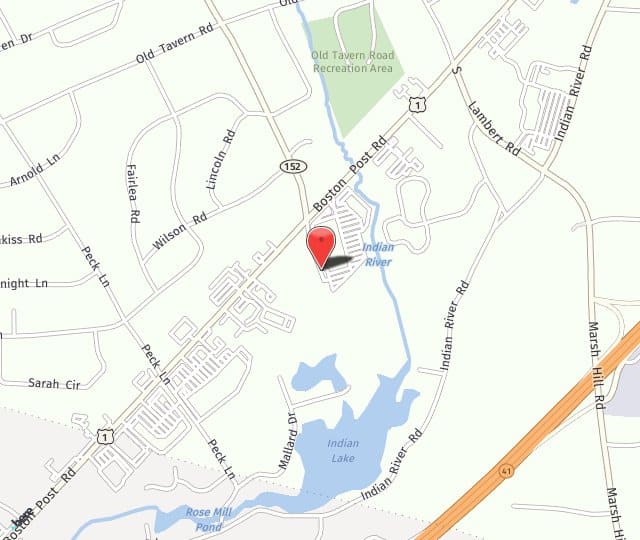Breast Implant Removal
What is breast implant removal surgery?
Breast implant removal, also known as “explantation” surgery, is a common procedure which involves the permanent removal of saline or silicone breast implants. Comparatively, when a patient wishes to remove one set of implants and replace them with another, that is typically referred to as breast revision surgery.
Patients sometimes choose to have a breast lift following breast implant removal. During the consultation process, Dr. Restifo will review whether this is necessary to achieve the desired aesthetic results.
During breast implant removal surgery, Dr, Restifo removes any excess silicone material and evaluates whether it is advisable to remove scar tissue capsules that may have formed as the result of having breast implants.
Why do people choose breast implant removal surgery?
The most common reasons that people consider breast implant removal surgery include:
- Your saline implants have deflated or an MRI suggests your silicone implant has a shell leak
- You experienced capsular contracture (tightening/hardening of the scar tissue around the implant)
- Your lifestyle has changed and you no longer want breast implants
- You suspect you may have Breast Implant Illness (BII)
- You have textured implants and are concerned about Breast Implant Associated-Anaplastic Large Cell Lymphoma (BIA-ALCL)
You are likely a good candidate for breast implant removal surgery if you are in good health and have realistic goals and expectations.
Dr. Restifo’s Approach to Breast Implant Removal
Fully Customizable Breast Implant Removal
During different seasons in life, a woman’s body may change alongside her aesthetic preferences based on lifestyle and life-stage. For this reason, our pre-operative consultations focus on understanding what each patient hopes to gain and what approach will achieve the best long-term health and aesthetic results.
The Buzz About En Bloc Removal & Total Capsulectomy
Many patients who are concerned about BII may have read about the need to have an “en bloc” removal or a “total capsulectomy”. At a consultation, Dr. Restifo will discuss when it is and isn’t appropriate to use these approaches.
En bloc removal involves removing any scar tissue capsule and the implant(s) at the same time, with the implant still inside the intact scar tissue capsule. This allows the silicone to stay inside the scar tissue capsule minimizing the possibility of silicone, other chemicals, and bacteria from leaking into the body. This typically requires a larger incision and may not always be the safest option available.
Total Capsulectomy is sometimes used as a synonym for en bloc removal, but they are not identical. A total capsulectomy is the removal of the breast implants and all the scar tissue, or capsule, that forms around a breast implant, but the implant is not necessarily removed inside the intact scar capsule (i.e. the en bloc method). Most surgeons use the term “total capsulectomy” to indicate that they will remove the implants first, then will remove all of the scar tissue capsule.
Considerations for En Bloc Removal & Total Capsulectomy
Dr. Restifo commonly addresses questions surrounding the benefits and limitations of the en bloc and/or total capsulectomy procedures with explant surgery. There are some important considerations that patients should be aware of, including:
- The possible need to leave a portion of the capsule behind to prevent significant damage to muscles, ribs or lungs.
- Larger and/or different incision points than the original breast augmentation surgery will likely be necessary.
- There are increased surgical risks associated with en bloc capsulectomy because it requires a complete dissection of all the tissues surrounding the breast implants.
- There is not enough collective data to suggest that there will be improvement in symptoms that have been labelled Breast Implant Illness (BII).
Dr. Restifo has over twenty-five years of experience specializing in plastic surgery of the breast and body. He takes the health and safety of his patients seriously and will make recommendations based on your priorities and well-being. He has performed hundreds of breast implant removal surgeries and is fully committed to ensuring patient satisfaction and comfort. He will also be candid about what can be accomplished and will make recommendations to ensure the best possible outcome. He will only recommend additional procedures that are in alignment with your aesthetic and health-related goals.
Complementary Procedures
Dr. Restifo may recommend combining breast implant removal with other procedures such as a breast lift for more satisfying results.
Please note: Although many doctors perform cosmetic procedures, you need to know that plastic surgeons, facial plastic surgeons, and cosmetic surgeons are not the same thing, plus board-certification matters. Learn more about specialization here. Also be sure to watch the video: How to Avoid Unqualified Practitioners.
Dr. Restifo is a Harvard-educated, board-certified plastic surgeon with over twenty-five years of experience performing surgery with excellent results. He does breast implant removal procedures (sometimes combined with a breast lift or implant replacement) several times each month.
Watch Real Patient Testimonials!
Schedule a Breast Implant Removal Consult with Dr. Restifo!
Give us a call at 203.772.1444 to learn more about Breast Implant Removal and whether you are a candidate! You can also go to our contact page and fill out a form to book a personalized consult with Dr. Richard J. Restifo. Our practice serves Orange and the surrounding areas of Connecticut.
FREQUENTLY ASKED QUESTIONS ABOUT BREAST IMPLANT REMOVAL
How is breast implant removal done?
What are the considerations and limitations surrounding breast implant removal?
Issues following breast implant removal surgery are uncommon and usually minimal, however they may include:
- Swelling and pain
- Scarring
- Changes in sensation
- Changes in milk production
What should I expect at an initial breast implant removal consultation?
Prior to your consultation, you will be asked to fill out a complete medical history, which includes information about:
- Medical conditions, both past and present
- Current medications and supplements
- Previous surgeries and medical treatments
- Allergies
- Pregnancies
- Mammogram results from within the past year (for patients over 40)
- Family history of breast cancer
- Current use of alcohol, tobacco and recreational drugs
- Weight fluctuations
During your initial consultation, Dr. Restifo will listen to your cosmetic goals, needs, and any medical concerns. He will evaluate whether you’re a good candidate for breast implant removal based on your anatomy and physical health, and will determine a treatment plan based on your expectations. He will also be candid about whether he can achieve the outcome you desire.
After you’ve discussed the size and shape of breasts that you desire, Dr. Restifo will work with his assistant to measure and photograph your breasts for your medical record. He will also evaluate the following:
- Current size and shape of your breasts.
- State of your skin’s elasticity.
- State of existing breast tissue.
- Type and size of current implant.
- Current size and location of your nipples and areolas.
- Desired breast size after surgery.
How will I know if I need a breast lift?
How will weight changes affect breast implant removal?
Is breast implant removal safe?
Dr. Restifo is committed to each patient’s safety and satisfaction and he stays well-informed regarding surgical techniques to get the best possible outcome for breast implant removal. There are some separate safety considerations related to the en bloc procedure as detailed above.It is important for women who have removed implants to continue to have periodic examinations (e.g. mammograms) to monitor their breast health.
What will my breast implant removal scars be like?
How long will the results of breast implant removal surgery last?
Breast implant removal results are typically long-lasting if you maintain a healthy body weight, however lifestyle and life-stage both play a role in how long the results of your surgery will last. Your breasts can change due to a number of factors, including:
- Pregnancy
- Hormonal fluctuations
- Time and gravity
- Weight change
If a breast lift is a part of your explant treatment plan, GalaFLEX® breast mesh may be recommended to lengthen the expected duration of your results.
How do I prepare for breast implant removal surgery?
Prior to your surgery, Dr. Restifo will ask you to:
- Stop smoking at least six weeks before undergoing surgery to better promote healing.
- Contact your primary care physician to schedule a preoperative physical for the following tests required for your surgery:
- A recent complete history and physical with medical clearance for surgery and general anesthesia
- Labs complete with CBC, PT, PTT
- Current EKG and report of the reading for patients over the age of 50 or those with a cardiac history
- A mammography report completed within the last year (for patients over 40)
- Any other exam that you or your physician feel is indicated
- Avoid taking aspirin and certain anti-inflammatory drugs (e.g. ibuprofen, naproxen) that can increase bleeding.
- Fill any prescriptions he provided prior to surgery (though you won’t need them until afterwards).
- Hydrate well both before and after the surgery for safe recovery.
- Purchase a front-closure sports bra.
- Arrange for a ride home after surgery.
- Plan to have someone to stay with you for at least the first 24 hours following surgery.
Full preoperative instructions can be found under Patient Resources.
What Should I Expect After Breast Implant Removal Surgery?
Many patients return to work within one week, although we recommend that patients wait a minimum of two weeks before driving. Patients should walk as early as the day of surgery, but should also refrain from lifting, pulling or pushing anything greater than five pounds for one month. We also recommend avoiding high impact aerobic exercise or upper body workouts for four to six weeks.
Any post-operative pain, swelling and sensitivity will diminish over the first few weeks. It may take several weeks for your breasts to fully “settle” into place.










